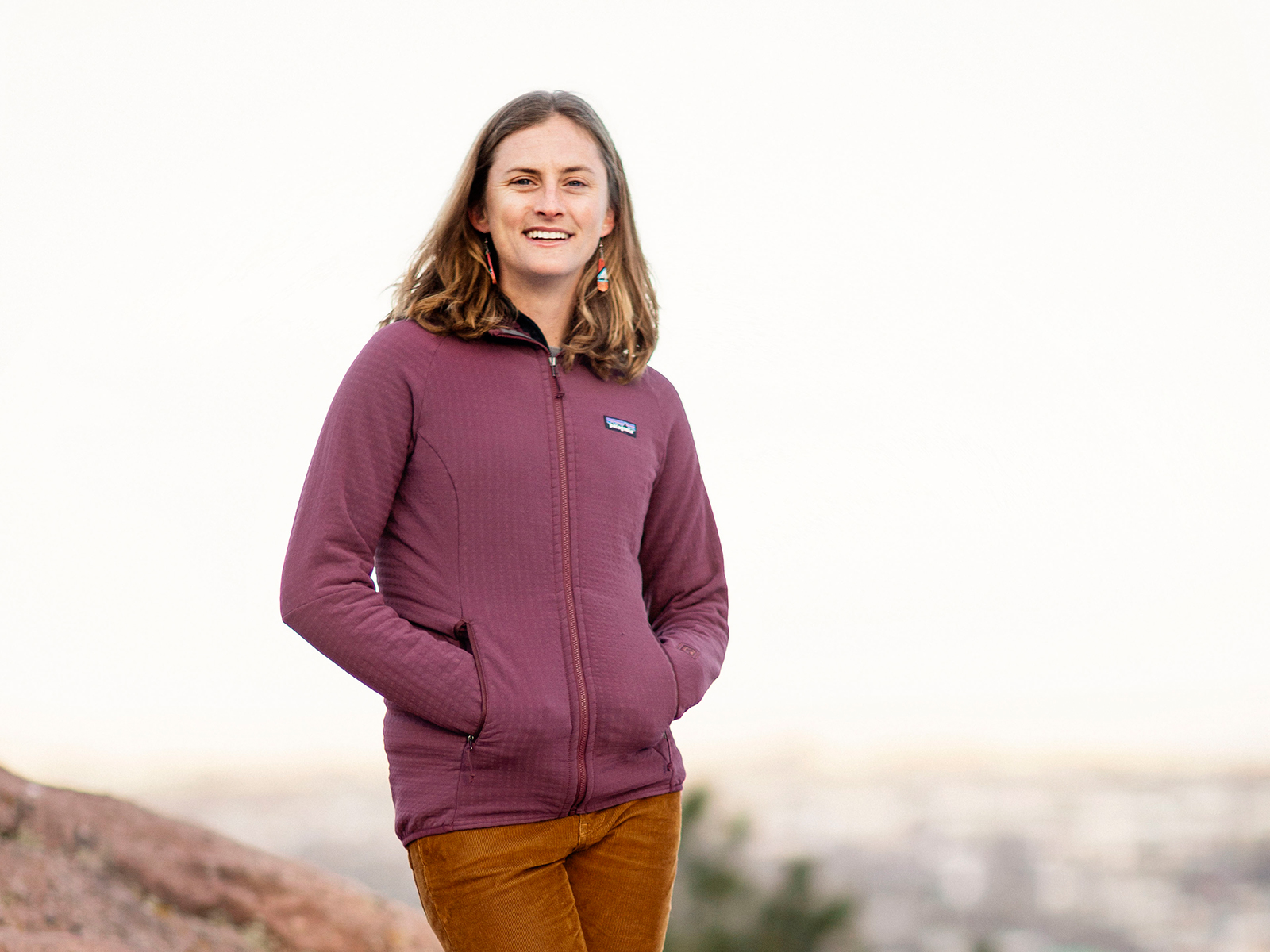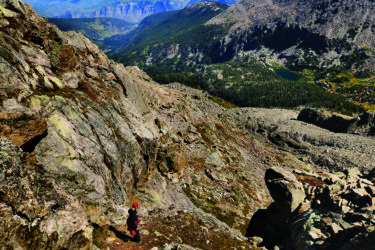The Local newsletter is your free, daily guide to life in Colorado. For locals, by locals.
In 2016, former Princeton cross-country athlete Clare Gallagher was an aspiring doctor running long mileage through Boulder’s foothills. Then, two weeks after deciding not to attend medical school, she won the legendary Leadville 100. The victory earned her ultrarunning fame, endorsement deals, and, perhaps most important, a platform. Ever since, Gallagher has worked with organizations like climate advocacy group Protect Our Winters (POW) and Patagonia, one of her sponsors, to advocate for earth-friendly causes. She’s even delved into politics, fundraising for Phil Weiser during the Democrat’s successful bid to become our state’s attorney general in November. This month, Gallagher will participate in Running Up for Air – Colorado, an endurance challenge in Evergreen that aims to raise awareness about Front Range air pollution. (Money from entrance fees will be donated to POW.) Before she hit the trail, we asked Gallagher about the surprise beginning to her career, how global warming is affecting her sport, and why she’s mobilizing the running community to defend Mother Nature.
Resumé
Name: Clare Gallagher
Age: 27
Occupation: Endurance athlete; environmental advocate
Next Challenge: Running Up for Air – Colorado on March 9 (register to run the four-mile loop yourself for three, six, or 12 hours at runningupforairco.com)
5280: When did you first become interested in environmental activism?
Clare Gallagher: In college, I went to Palau [an island country in the western Pacific Ocean] to study coral reef ecology. I was living there when the world woke up to the fact the corals are dying. It made me want to dedicate my life to climate change mitigation.
So you became a professional runner?
[Laughs] I didn’t necessarily choose to become a professional ultrarunner. I had recently given up my dreams of going to med school, and I really needed a career. Winning the Leadville 100 in 2016 gave me permission to do something I’d always wanted to explore. So when a sponsorship opportunity popped up, I was like, OK, yeah, I’ll do this pro running thing.
How does running inspire your activism?
When I’m running, I’m truly grounded to the earth, which motivates me. If I were a full-time activist, I wouldn’t have that connection of putting my feet on the earth every day, seeing the seasons change, being in the natural elements.

You see the impact of climate change.
Exactly. Like right now, with the forest fires, races are being canceled constantly. This year, I signed up for two races in California, and neither happened because of fires. All summer in Colorado, people were talking about whether it was dangerous for us to run because of the smoke coming from California and the Pacific Northwest. That’s a global warming issue—anthropogenic climate change is correlated with these hotter, more catastrophic forest fires.
How have people been responding to your activism?
Millions of people identify as runners. We rely on healthy air quality and outdoor spaces, but we haven’t been mobilized to take action against air pollution and climate change. Running can be more altruistic. I’m trying to spread that idea among my followers. Most of the feedback I get is so positive, it makes me optimistic: There’s room to organize runners to be part of the solution.
So what’s the best way to energize and inform runners?
Races connecting with local nonprofits are a great way to expose runners to existing organizations like Suffer Better [the Boulder nonprofit organizing Running Up for Air – Colorado]. That’s why I’m excited about the race. Much of the climate change conversation is really depressing. With a run like this, you can sweat it out with others, take Fireball shots on the hill, and have a good time while actually doing something.









